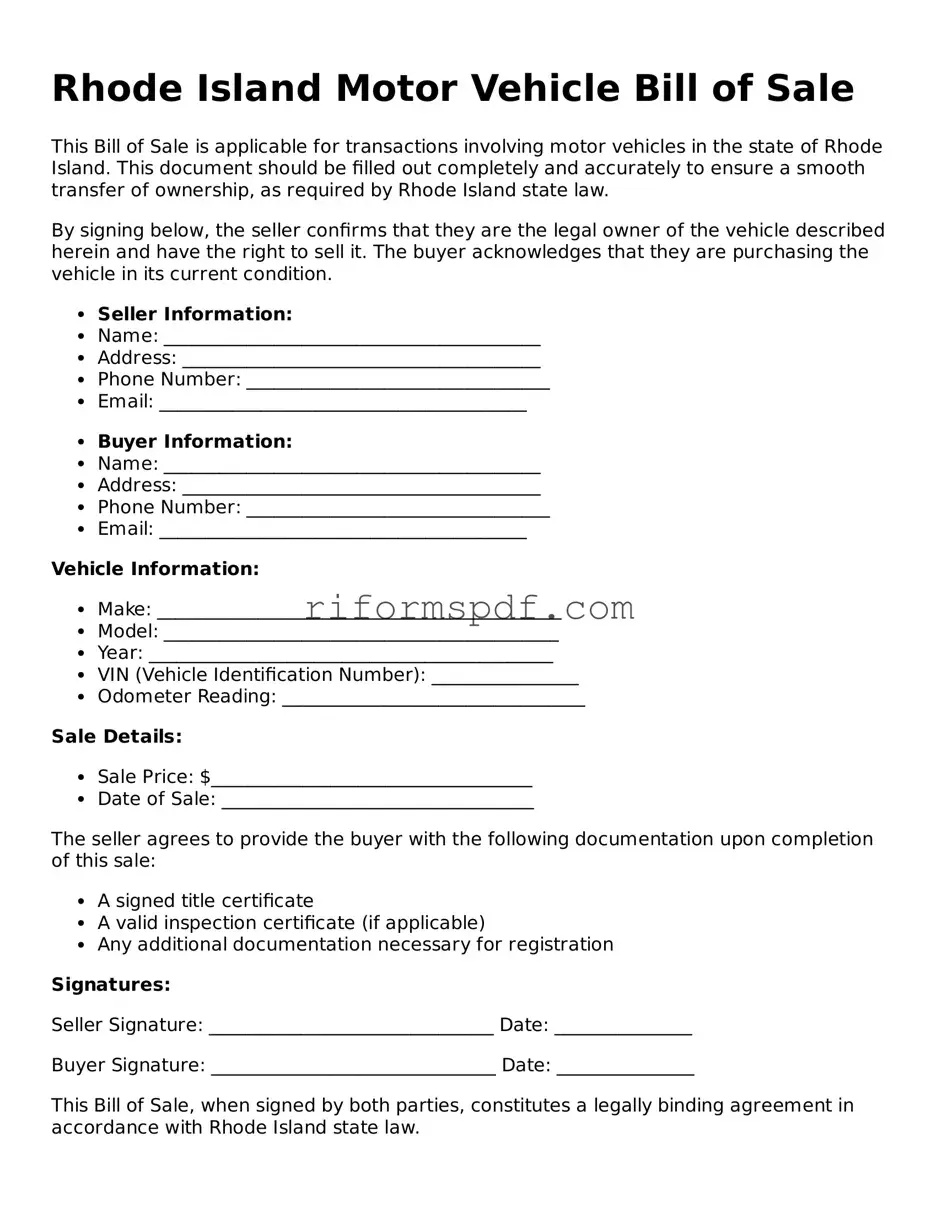Printable Motor Vehicle Bill of Sale Form for Rhode Island
The Rhode Island Motor Vehicle Bill of Sale form is a legal document that serves as proof of the transfer of ownership of a motor vehicle from one party to another. This form captures essential details about the transaction, including the vehicle's description, sale price, and the identities of both the buyer and seller. Understanding this document is crucial for ensuring a smooth transfer and protecting the rights of all parties involved.
Launch Editor

Printable Motor Vehicle Bill of Sale Form for Rhode Island
Launch Editor
Finish the form now and be done
Edit Motor Vehicle Bill of Sale online and skip the paperwork.
Launch Editor
or
⇓ PDF Form
